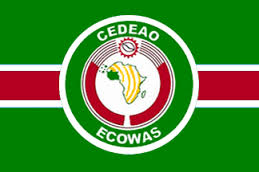ECOWAS has adopted the biometric identity card to replace the resident permit as from 2016.
This formed part of the decision made at the just-concluded 46th ordinary Session of the ECOWAS Heads of State and Government on Monday in Abuja.
While briefing newsmen at the end of the closed-door session, Amb. Kadre Ouedraogo, said that the decision taken would facilitate the free movement of persons and goods within the sub-region.
Ouedraogo also said that the adoption of the biometric identity cards would facilitate the implementation of the Common External Tariff (CET), expected to come into effect on Jan. 1, 2015.
Also addressing newsmen, Ghanaian President John Mahama, who is the Chairman of the Authority of Heads of State and Government, said the CET would make the region a customs union.
“We have a common customs union; so it means if you are bringing goods and services into the ECOWAS sub-region they attract the same tariffs.
“Normally a customs union is a precursor to a free trade area or a common market. So we have taken an important first step to harmonising our tariffs.’’
He added that the summit had directed the commission to take necessary measures to create appropriate “arbitration channels” to ensure the implementation of the CET.
Mahama also pointed out that the bloc was committed to ensuring enhanced security measures to achieve integration and ensure an enabling environment for investment.
The summit came with a communiqué that reiterated the commitment of the bloc to ensuring the implementation of strategies to achieve the ECOWAS vision 2020.
The heads of state and government reiterated the urgent need to strengthen and improve the efficiency of national health systems and urged member states to take necessary measures to that effect.
The Authority welcomed the signing of the Economic Partnership Agreement and instructed the West African Chief Negotiators to expedite actions to organise the signing and ratification of the EPA by member states.
It also urged member states to be involved in the ratification process of the agreement.
The Authority welcomed the progress made in the implementation of joint border posts, adding that it would facilitate transportation within the sub-region and enhance trade flows.
The Authority reiterated their commitment to promoting peace, security, good governance and the rule of law in line with ECOWAS protocols.
The summit reaffirmed its commitment to achieve political transition and constitutional reforms in Guinea Bissau and Burkina Faso.
The summit also agreed on the need to review legal texts in force ahead of the 40th anniversary of the sub-regional bloc.
The News Agency of Nigeria (NAN) reports that the presidents of Benin, Burkina Faso, Cote d’Ivoire, Ghana, Guinea Bissau, Mali, Niger, Nigeria, and Togo attended the meeting.
However, the presidents of Cape Verde, Gambia, Guinea, Senegal and Sierra Leone were represented at the meeting. (NAN)












